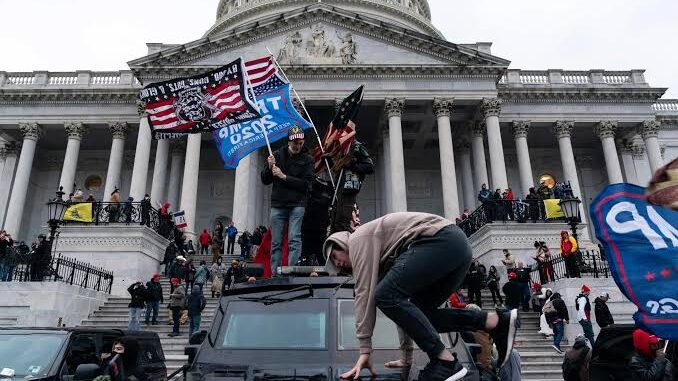
The Myth of Arab Democracy: A Barrier to Regional Stability”lol pp 0
For decades, the political narrative surrounding the Middle East has been marred by the assumption that Arabs are somehow incapable of embracing democracy without threatening regional stability, particularly Israel’s security. This notion has been deeply ingrained in Western foreign policy, influencing U.S. strategy and attitudes toward the Arab world. Western politicians and commentators often claimed that democratic governance in Arab nations could lead to the rise of Islamist movements or destabilize fragile regimes, resulting in an increasingly chaotic and hostile environment for Israel.
This myth was shaped by historical events like the rise of political Islam, the spread of authoritarianism, and the strategic interests of Western powers, particularly the United States. In the 1990s, during the early days of the Arab Spring, some U.S. policymakers feared that any transition to democracy in the Middle East could lead to governments less sympathetic to Israeli interests, thereby compromising the longstanding peace agreements between Israel and certain Arab states. These fears were largely based on a perception of Arab society as being inherently anti-Israel, a belief that political freedom in these nations would only bolster extremism and anti-Western sentiments.
However, the narrative surrounding Arab democracy is not only flawed but also ignores the diverse political landscapes and evolving political will of the Arab population. The recent political turmoil in the Arab world, such as the rise of the Arab Spring, revealed that many Arabs sought not only political freedom but also economic opportunity, better governance, and human rights, with less emphasis on hostility toward Israel. While it is true that radical political ideologies have sometimes gained traction, it’s equally important to recognize the role of civil society and the demands for reform in many Arab nations. The potential for Arab democracies to promote regional stability and collaboration, including with Israel, has long been underestimated.
The failure to acknowledge the true aspirations of Arab citizens is a critical oversight. Arab countries, particularly those that have engaged in peace processes or entered into normalization agreements with Israel, demonstrate that the path toward democracy does not always lead to anti-Israel extremism. Countries like Jordan and Egypt, both of which signed peace agreements with Israel, have shown
even in the face of democratic reforms, pragmatic relations with Israel can be maintained.
America’s Struggle with Democracy: A Warning for Global Governance”
While the myth of Arab incapacity for democracy was long upheld by Western powers, a far more concerning issue has emerged closer to home: the United States’ own struggle with its democratic institutions. In recent years, it has become increasingly clear that democracy in America is facing significant challenges. The United States, often seen as the global beacon of democratic values, is grappling with issues of political polarization, election interference, and systemic inequalities that challenge the very foundations of its democracy.
The political crisis unfolding in the U.S. reveals that democracy, while deeply ingrained in American culture, is not immune to the pressures of populism, misinformation, and institutional breakdowns. The Capitol insurrection of January 2021, the ongoing partisan gridlock, and the erosion of public trust in democratic processes all point to a society struggling to maintain its democratic ideals. Furthermore, the role of money in politics and the outsized influence of corporate interests have raised questions about whether the U.S. remains a true democracy or if it has transformed into an oligarchy that serves the interests of a powerful few rather than the public.
Ironically, this crisis of American democracy mirrors the historical anxieties that shaped U.S. foreign policy towards the Arab world. For years, the United States feared that the advent of democracy in the Middle East would destabilize the region and undermine Israeli security. Now, as the U.S. itself faces significant challenges in its democratic framework, the world is left wondering if the ideal of democracy is truly sustainable even in its birthplace. The country that once lectured others about the importance of democratic governance is now grappling with its own deepening divides and institutional failures.
This crisis raises important questions about the future of democratic governance globally. If the U.S., with all its resources, history, and experience, can face such severe challenges to its democratic system, what does that mean for other democracies? How can the international community continue to promote democracy in the face of rising authoritarianism and internal instability? The U.S. must reflect on its own shortcomings before passing judgment on others, particularly when it comes to countries in the Middle East. The situation in America offers a sobering reminder that democracy is not an unshakable ideal, but rather something that requires constant vigilance, reform, and adaptation to changing times. If the U.S. cannot safeguard its democracy, it risks losing the moral high ground from which it has often criticized other nations for their political systems.
Ultimately, both the Arab world and the U.S. are grappling with the complexities of democracy in their own ways. The idea that Arabs are unfit for democracy is outdated and misleading, just as the assumption that America’s democratic institutions are invulnerable is dangerously naive. It is crucial that the global conversation shift from undermining the democratic aspirations of others to addressing the challenges faced by all democracies, including the one that has long claimed to be the world’s standard-bearer.
Leave a Reply